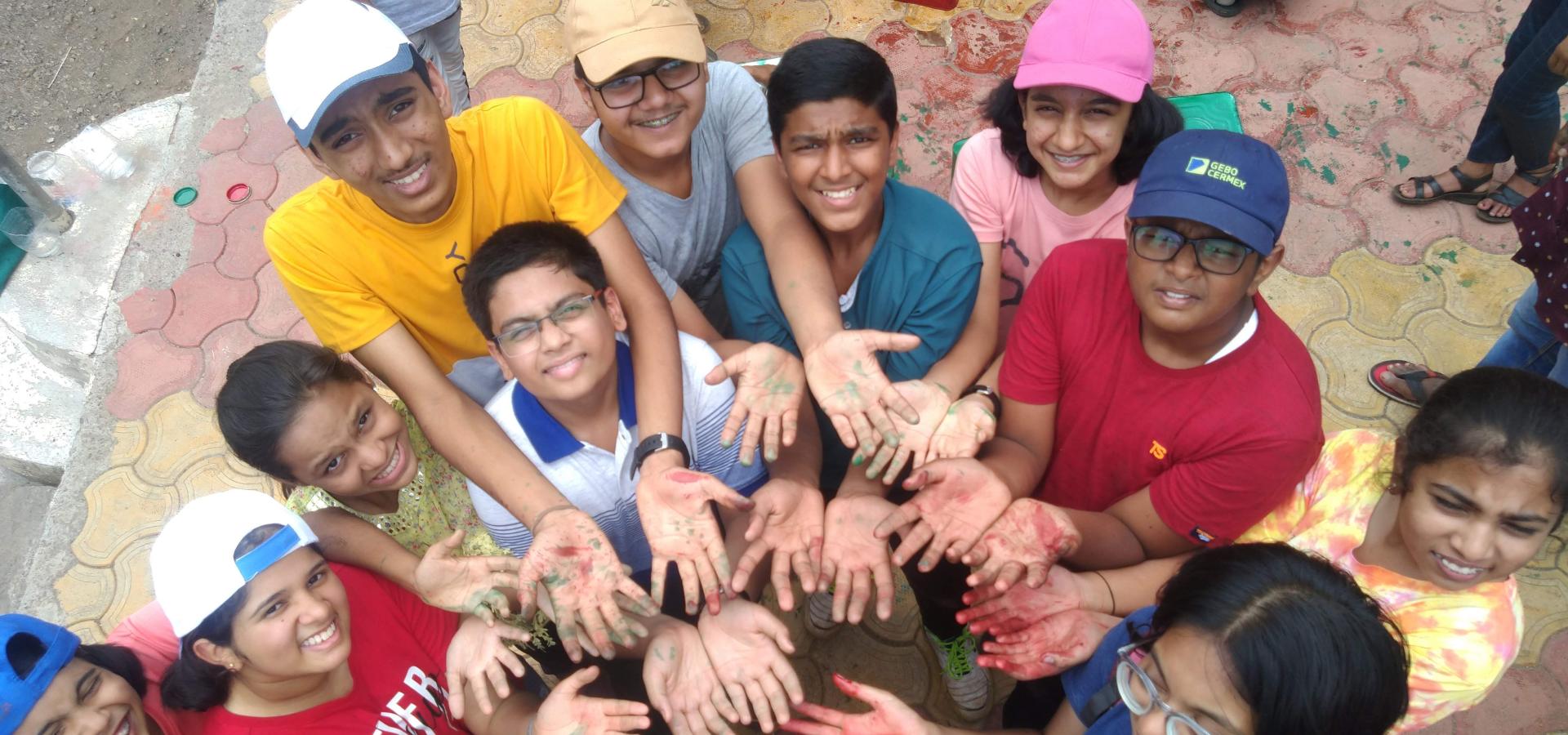First ever Urban-Rural Summer Camp
Camp aimed to strengthen bond between urban and rural students.
by Sonia Deshpande, Manon Michelle Monhemius
The first ever Urban-Rural Summer Camp was held by the Indian trustbuilding team at Grampari, Panchgani, from 5 to 8 May 2023. The camp aimed to strengthen the bond between urban and rural students who participated in the urban-rural connect programme. The camp focused on Water, Waste, and Nature conservation and community stories, with related activities for the four-day duration. It provided a platform for the children to learn about being changemakers and initiating change within themselves as well as to build connections between the urban and rural students.
The 41 participants came from four schools, three rural and one urban.
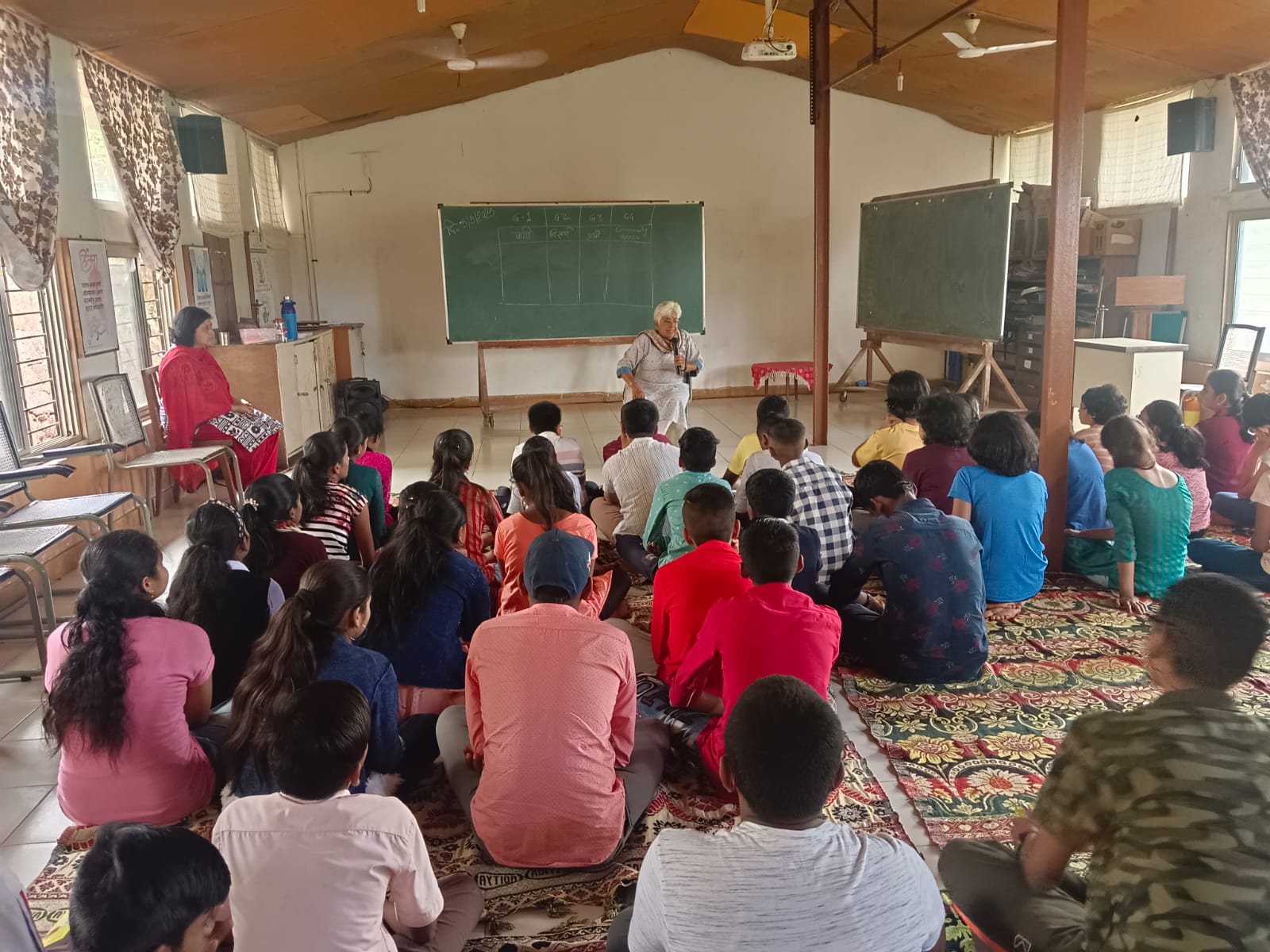
Day 1 - Inspiration
The first day of the summer camp centred around the theme of inspiration. Grampari's founder, Jayashree Rao, shared what inspired her to start Grampari. She recounted attending a camp at the same age as the participants, where she was motivated to work with Moral Re-armament (MRA). Starting Grampari at 65 was driven by her deep commitment to rural India, she shared.
She encouraged the rural children to be proud of their knowledge, adding that urban India has much to learn from rural India. The children sat together in silence to reflect on what had inspired them from the stories they heard. The children also heard from Ganesh, who shared his moving personal change story of forgiveness that came from listening to his inner voice during quiet time.
The children were divided into four groups: Water, Earth, Nature and Community Stories. Each group's task was to observe and capture any session in the next four days related to their group's topic. They would then share what they learnt with everyone on the last day of the programme. Later, the children visited the Initiatives of Change Centre at Asia Plateau and heard of the many people who contributed to making the Centre. The first day of the summer camp ended with sharing in family groups about who supports them in their family and whom they support.
'I learned that making new friends is not easy but very important. Also, I learned that not everyone shares my opinion, which is all right.' An urban Student
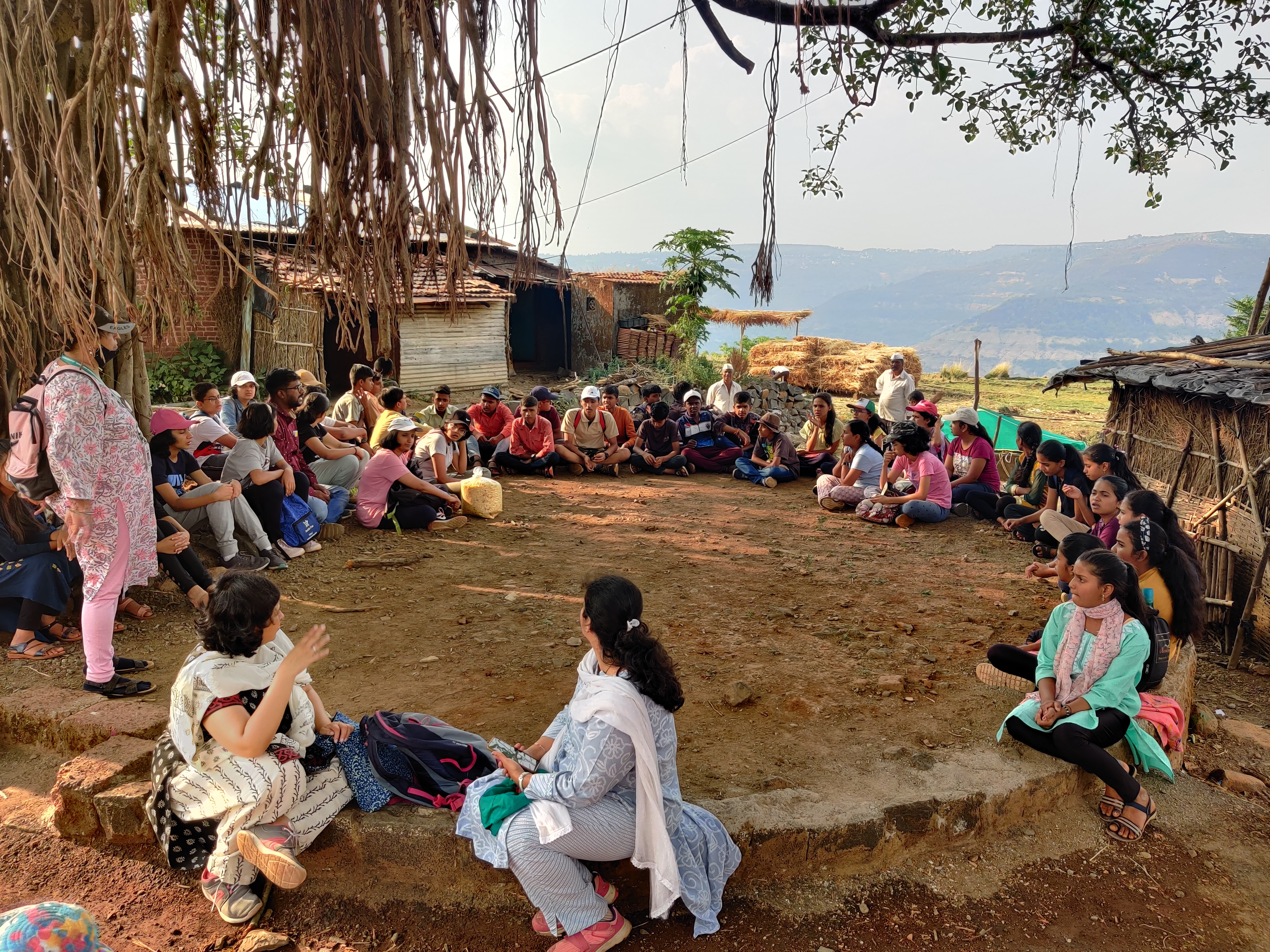
Day 2 - Direction
During an inner development session, Dipak Jadhav guided the children to reflect on the direction or goal in their lives and the barriers that may prevent them from achieving it. He clarified that while career goals are important, being a good human is equally important. Though the career options of choice vastly differed for the urban and rural children, they shared the same barriers to what prevents them from reaching their goals, like procrastination, laziness or a lack of initiative.
The inner development session was followed by a talk by the Nature Caretakers, a group of local youth that aims to conserve nature. Post lunch, the children were introduced to PARI, People’s Archive of Rural India. Sanviti spoke about PARI and the stories they cover, focusing on rural and marginalised communities. The day ended with a visit to Akhegani, a Grampari Adopted Village, to see the various initiatives for water management undertaken in the village.
'Through practising quiet time, I understood that I shouldn't tell lies, not be over-confident and not use bad language.' A rural Student
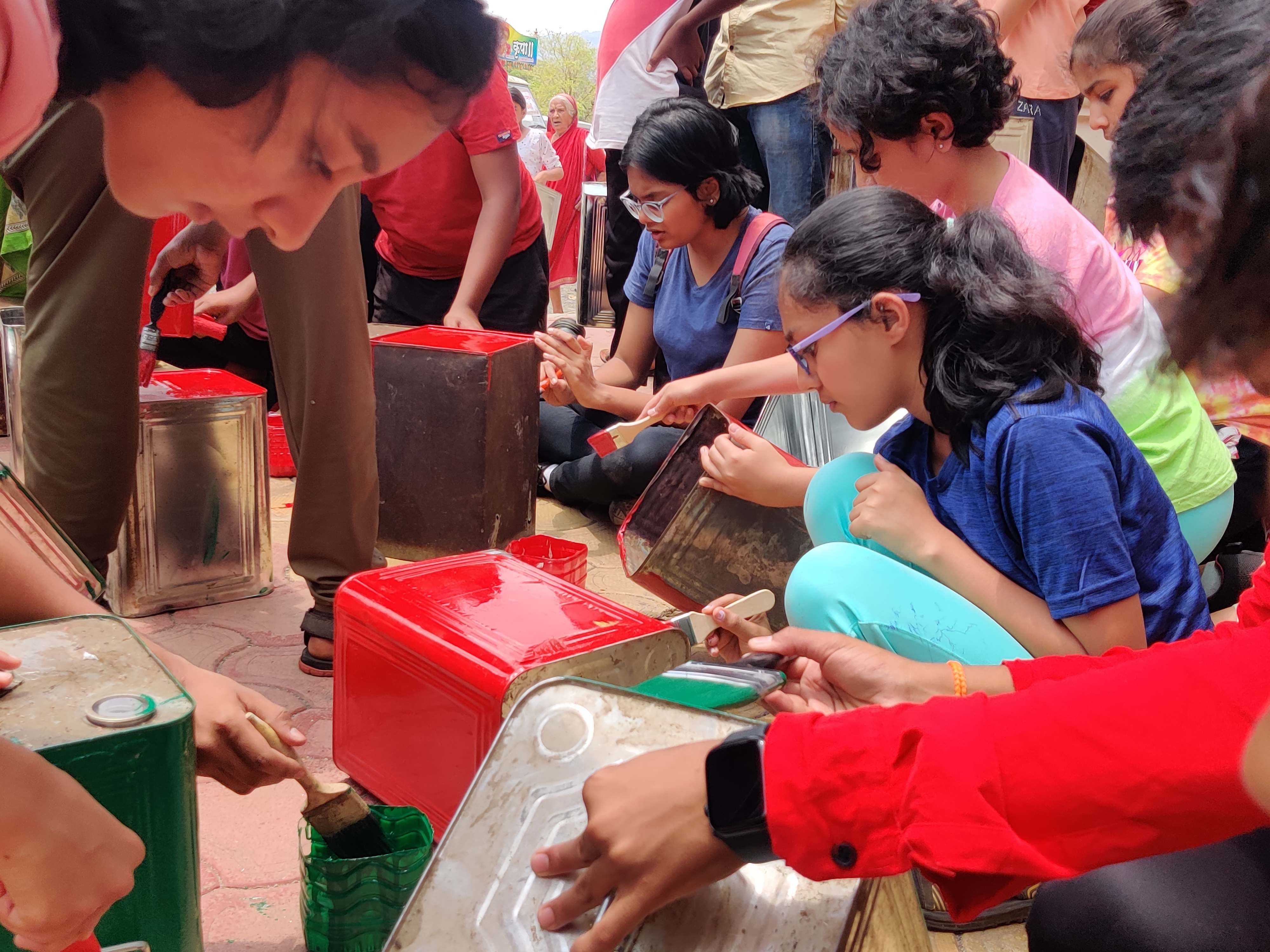
Day 3 - Action
On the third day, sudden rains soaked the children's shoes but did not dampen their spirits. The children visited Dapavdi, where they helped paint the tins for the villagers to use for garbage separation. At first, only a few containers were available for the children to paint, but once the village community saw the children's zest, more and more cans appeared. The children's gratification was palpable when they saw red and green tins outside the people's homes. The Dapavdi community thanked the children with a local dessert - sheera.
As the theme of the third day was action, in the afternoon, Atharva shared the actions that he has taken to change his life through inner listening. He conducted the glass experiment to demonstrate various traits in himself that he sought to remove after he spent time listening to his inner voice. The children were then asked to reflect on what would be in their own glass experiment - habits and attitudes they want to change about themselves. Some children shared insightful observations about themselves. One girl likened her habit of overthinking to a tangled thread, whereas another compared her tendency to hurt people to how an onion makes people cry.
The next activity was building a tippy tap, an innovative yet simple device that enables children to wash their hands. The day ended with much merriment and energy at the cultural evening, where children performed several songs and enjoyed dancing together.
'I learned that quiet time helps in multiple ways. It helps to change our behaviour positively. I also learned that we should always care for nature and keep it clean.' An urban student
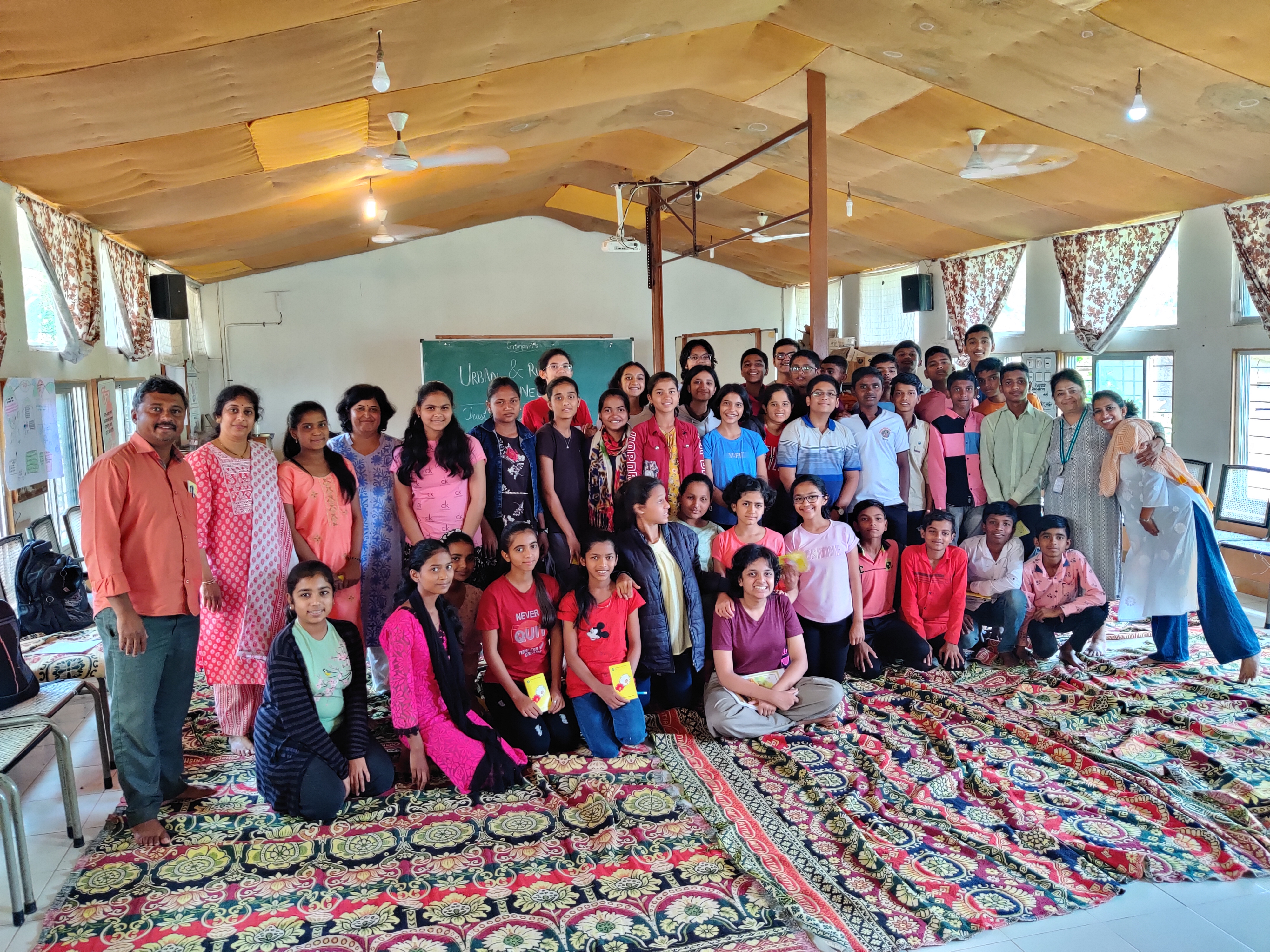
Day 4 – Presentations
On the last morning of the program, each group presented what they learned about their topic during the summer camp.
Group Water performed a skit about water wastage in cities and villages. They also composed a catchy song about water conservation. Group Nature spoke about the importance of caring for nature. They recited a poem they wrote about conserving nature. Group Earth presented an act about managing waste and the importance of segregation. Group Community Stories presented four community stories that stood out to them during the four days, including the history of the village temple at Akkegani. They also enacted the story of the Adivasis being displaced in Kuno.
"The four days were a blessing for the children - a great idea by Grampari and the school. I also learned about shant samay (quiet time), which the children practised. The children were excited to participate in new activities and village visits. They also loved the chart paper project with their four groups. A big thank you to the entire team and Grampari. Please keep continuing such kind of interesting camps for students." Urban parent
The groups' talent, confidence and innovation were outstanding, and it was heartening to see rural and urban children navigate ways of working together.
'By attending the summer camp, I learned that nature is beautiful and our friend. I also discovered that nature communicates with us.' A rural Student
'The summer camp was a significant milestone in the Urban-Rural connect. Unlike the programme they previously attended, where teachers choose the students to participate in the programme, here the students opted to attend. It shows the deep connection they have with the programme. The activities, especially the garbage tin painting, demonstrated how they could work together to create change.' Sonia Deshpande, Project Manager of the TBP India
